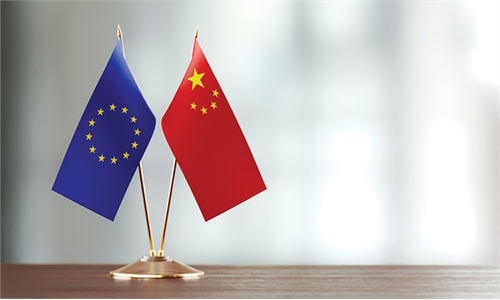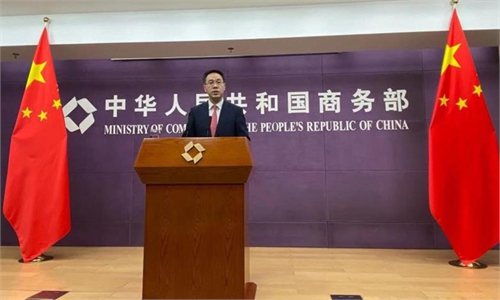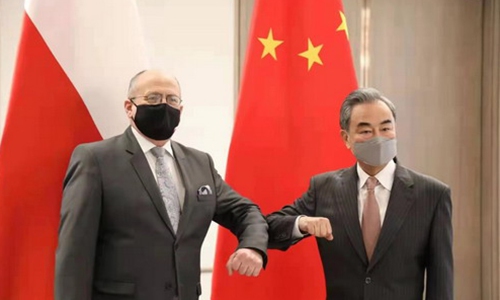COMMENTS / EXPERT ASSESSMENT
China-EU deal crucial to stop Europe’s declining investment

Illustration: Tang Tengefei/GT
China's investment in Europe hit a 10-year low in 2020, a recent report showed, citing reasons including EU's tighter scrutiny and the COVID-19 pandemic. It predicted that the trend may continue this year.The 27 EU members together with the UK saw a foreign direct investment (FDI) decline of 45 percent from China in 2020, down to euro 6.5 billion ($7.77 billion) from euro 11.7 billion in 2019, revealed the report issued by the US-based research consultancy Rhodium Group and the Germany-based think tank Mercator Institute for China Studies (MERICS).
Comparing the EU's scrutiny which has existed for years, the pandemic might be a major and more direct reason for the drastic investment decline. Aside from cross-border personnel exchange encountering serious obstacles, firms also tended to adopt a more prudent investment strategy amid the global health crisis, and Europe's sluggish economic situation amid the crisis also suppressed the appetite of investors.
The euro area in the first quarter entered a second technical recession since the pandemic outbreak with GDP declining in nearly all major economies including Germany, Italy and Spain. It drew a sharp contrast with other large economic entities which have already seen an accelerating economic rebound, such as China and the US.
The significance of investment is plain for all to see, especially for the European economy which had not fully recovered from the European debt crisis before the sudden onslaught of the pandemic.
Indeed, like the report revealed, the investment policy environment in Europe has been tightened and Chinese investors are one of the groups being mainly affected. The essential reason is that China's rapid growth and technology development has triggered intensifying anxiety among the European countries. Continued effort from some European politicians tries to not only heighten investment scrutiny, but also to obstruct the ratification of an advance investment deal between the two.
In the end of last year, the EU and China completed negotiations of the EU-China Comprehensive Agreement on Investment (CAI). Based purely on raw political calculations, the European Parliament earlier in May chose to freeze the ratification of the deal.
However, China's tech development won't stop, and Chinese economic momentum, as a global recovery driver, won't be dampened by external obstructions; but it does not mean that, between China's growth and EU's anxiety, the two have no way to join hands but to drift apart.
The international situation is always evolving; it is understandable that politics may see a growing influence over bilateral relation of China and the EU. Though it may slow down the growth of their economic and trade cooperation in some areas, expanding collaboration is still the bigger picture.
There are plenty of areas for the two to seek cooperation, even in advanced technology fields, such as environment protection, health service and others.
Irrespective of whether it is the European countries or the US, building a "wall" due to paranoid anxiety will harm either side. European businesses need the potential Chinese market to grow, and Chinese firms are boosting momentum of overseas markets. The era of cold war has passed, and the EU should take practical efforts to repair the mutual beneficial economic cooperation with China; and maybe start with promoting the implementation of CAI so as to reverse a trend towards declining FDI.
The article was compiled based on an interview with Li Gang, an associate professor at the Institute of European Studies under the Chinese Academy of Social Sciences. bizopinion@globaltimes.com.cn



